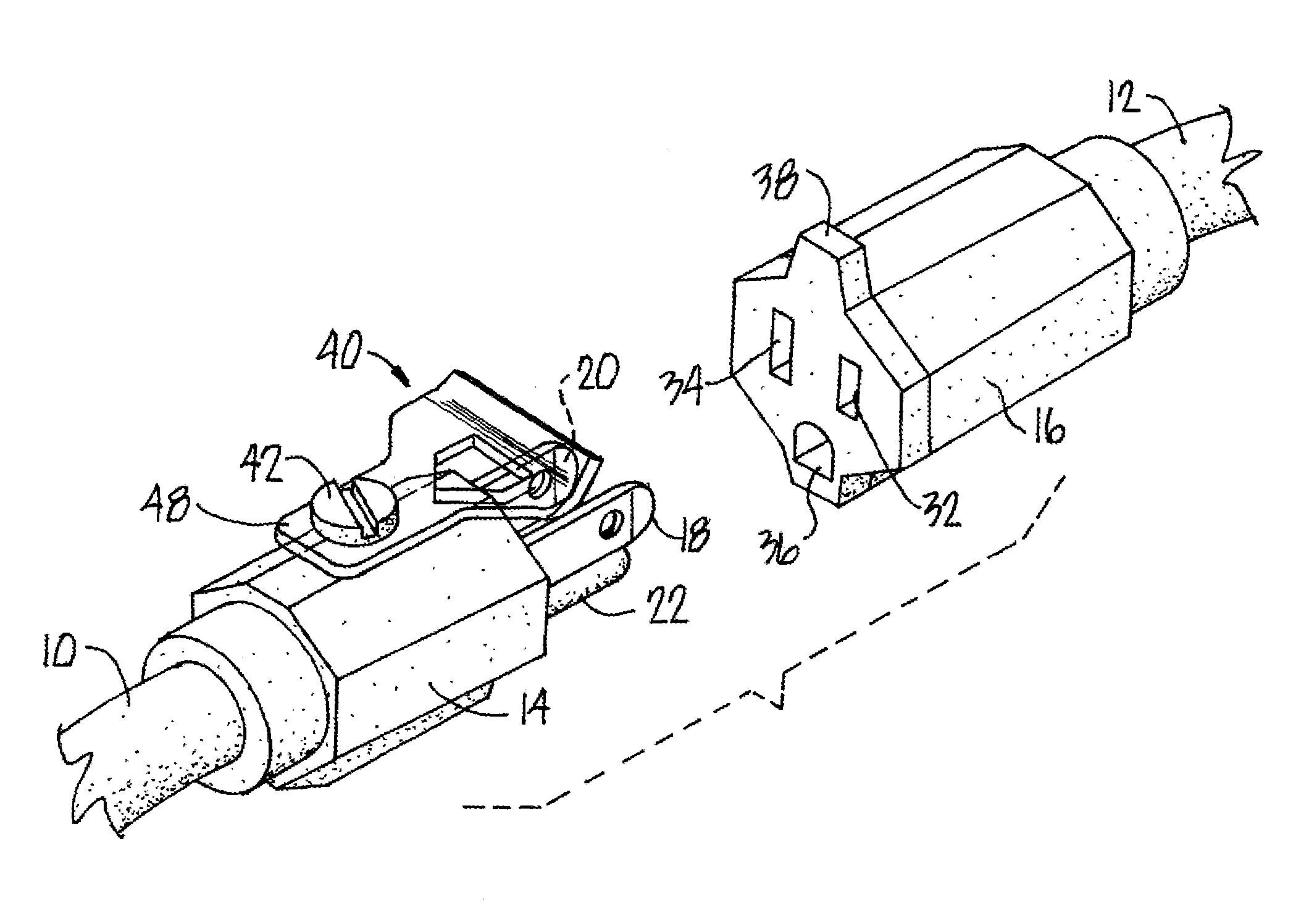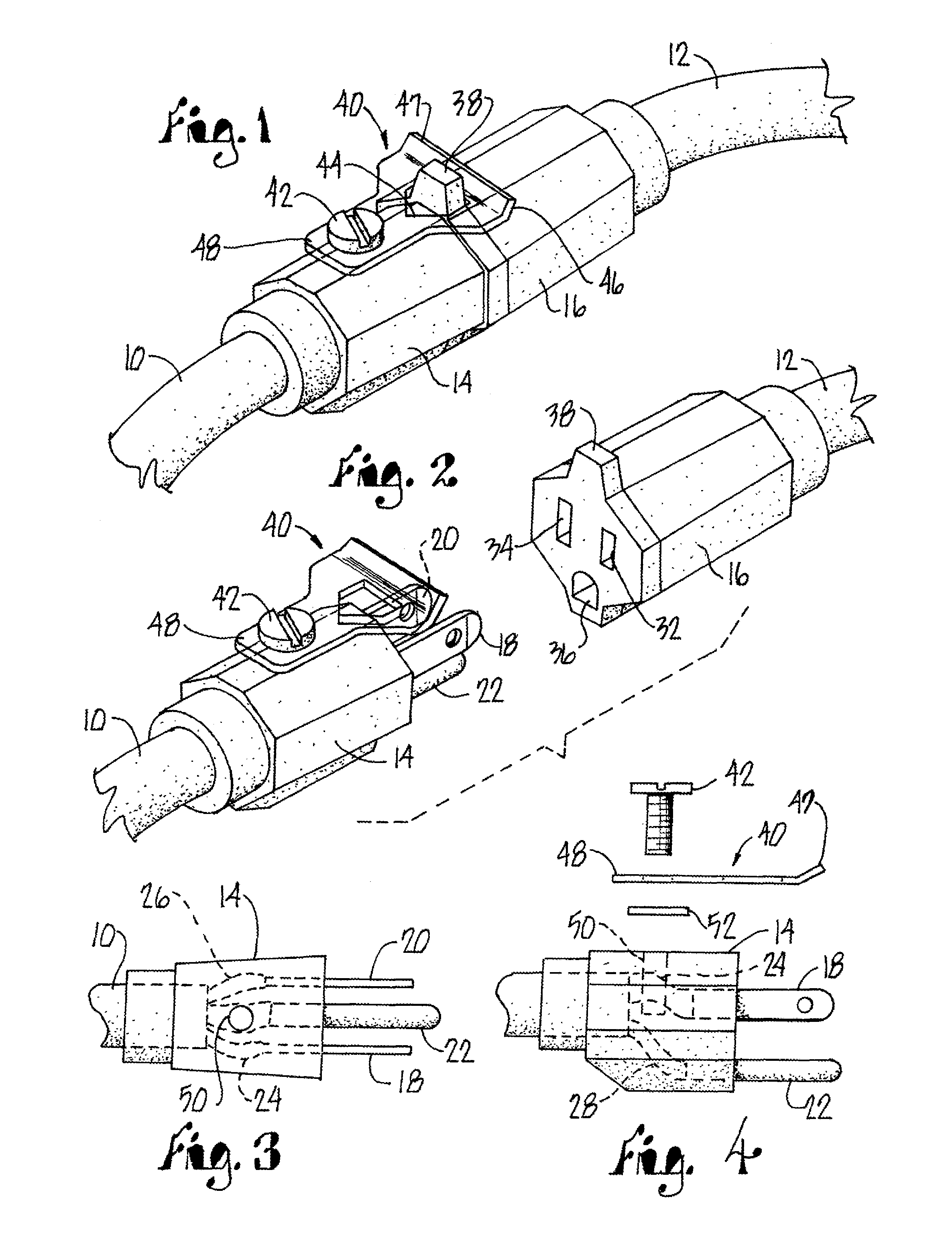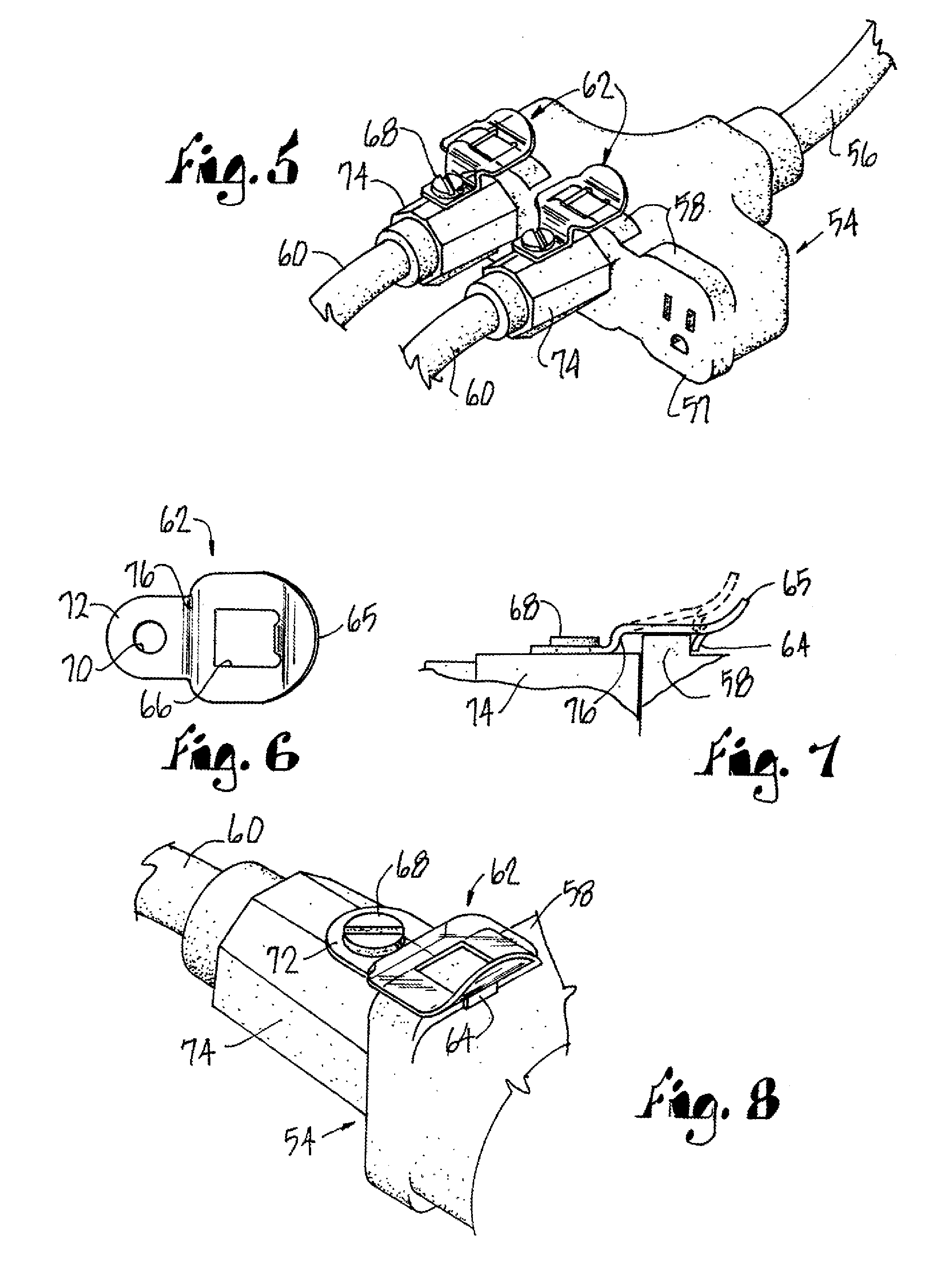Electrical cord locking connector
a technology of locking connector and electric cord, which is applied in the direction of coupling device connection, coupling parts engagement/disengagement, electrical apparatus, etc., can solve the problems of difficult to locate and reestablish the connection, lost time, and often remote live electrical outlet, so as to minimize interference in tight spaces
- Summary
- Abstract
- Description
- Claims
- Application Information
AI Technical Summary
Benefits of technology
Problems solved by technology
Method used
Image
Examples
Embodiment Construction
[0018]Referring initially to FIGS. 1 and 2, the mating ends of two extension cords 10 and 12 are shown connected together in FIG. 1 and separated in FIG. 2 in alignment with each other to show the male and female parts aligned prior to connecting cords 10 and 12 together. The end of cord 10 illustrated is provided with a male plug 14 which, in FIG. 2, is shown aligned with but withdrawn from a female socket 16 on the corresponding end of cord 12. It should be appreciated that cords 10 and 12 may extend 50 feet or more from the mating plug and socket illustrated in FIGS. 1 and 2 where the remote end of cord 10 would be provided with a socket, and the remote end of cord 12 would be provided with a plug. Accordingly, at a construction site where extension cords are used to connect power tools to a current source, series connected cords may extend hundreds of feet.
[0019]Referring also to FIGS. 3 and 4, plug 14 is typically provided with three prongs 18, 20 and 22. Extension cords for a ...
PUM
 Login to View More
Login to View More Abstract
Description
Claims
Application Information
 Login to View More
Login to View More - R&D
- Intellectual Property
- Life Sciences
- Materials
- Tech Scout
- Unparalleled Data Quality
- Higher Quality Content
- 60% Fewer Hallucinations
Browse by: Latest US Patents, China's latest patents, Technical Efficacy Thesaurus, Application Domain, Technology Topic, Popular Technical Reports.
© 2025 PatSnap. All rights reserved.Legal|Privacy policy|Modern Slavery Act Transparency Statement|Sitemap|About US| Contact US: help@patsnap.com



